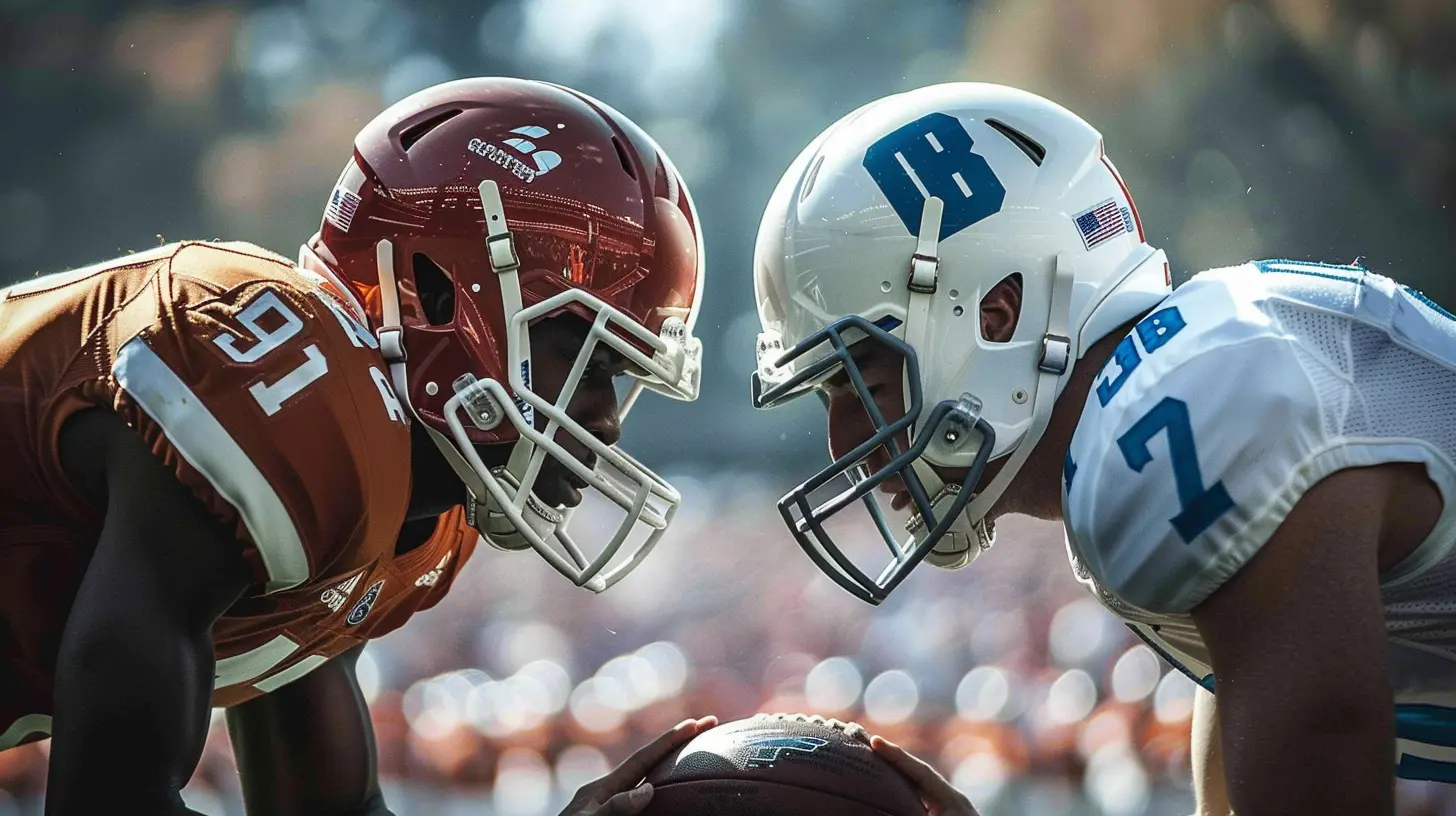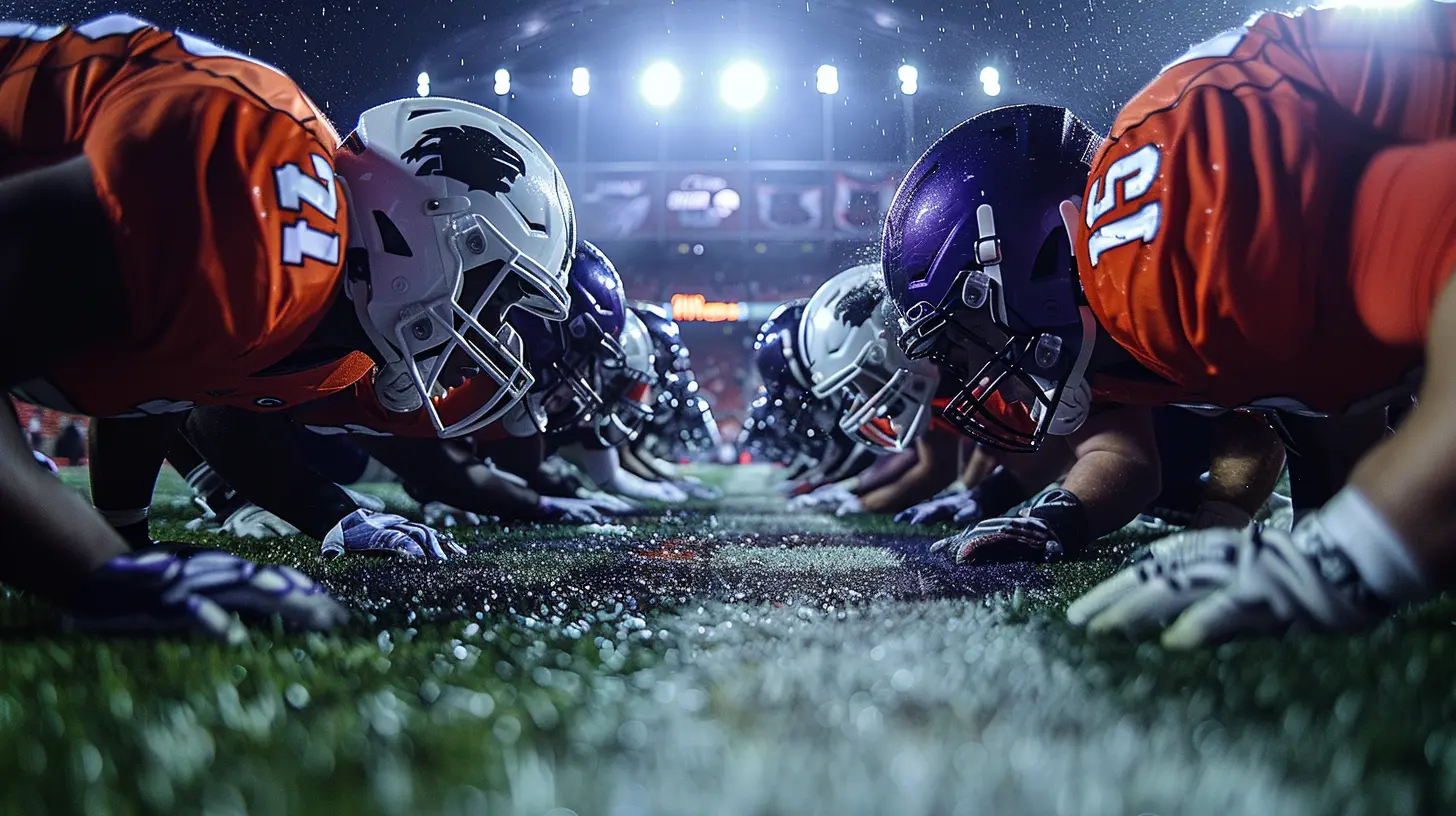The Value of Tradition in College Sports Rivalries
8 September 2025
When you hear the roar of the crowd at a college football game, or see fans painting their faces in school colors, you're witnessing more than just a game—you're seeing tradition in motion. College sports rivalries go way beyond stats and scoreboards. They’re deeply woven into the identity of campuses, communities, and generations of fans.
So, why are these rivalries such a big deal? Why does a Duke vs. North Carolina basketball game feel like a national event every year? Or why do Michigan and Ohio State fans mark their calendars months in advance for “The Game”?
It’s not just about the players or the wins—it’s about the tradition.
In this article, we're diving deep into the soul of college sports rivalries and unpacking their true value. Yeah, tradition might sound like an old-school word, but trust me—it’s the heartbeat of college athletics. Let’s get into it.
What Makes a Rivalry More than Just a Game?
Ever heard someone say, “Throw the records out the window—it’s a rivalry game”? That’s because, in these matchups, everything changes. There's a different energy, a buzz in the air, something you can't quite put your finger on.It's Emotional, Not Just Competitive
Rivalries tap into emotion. Whether you’re a student, alumnus, or just a diehard fan—when your team faces its biggest rival, it’s personal. These emotions aren't built in a single season; they accumulate over decades of battles, heartbreaks, and miracles.History Matters
Rivalries are fueled by history. Think Army vs. Navy—those teams have gone head-to-head since 1890. That's over a century of tradition! Every game adds another chapter to the storyline. Without that long-standing history, a matchup is just another game.
The Role of Tradition in College Rivalries
Okay, so tradition. It's more than marching bands and fight songs (though we love those too). Let’s break down what tradition really means in this context.1. Cultural Identity
Tradition gives a college rivalry its unique flavor. Whether it's the Iron Bowl in Alabama or the Red River Showdown in Texas, each rivalry has its own rituals, chants, legends, and mascots. These elements create a shared culture that connects fans—kind of like a secret language only insiders understand.Ask anyone who went to Auburn what “War Eagle!” means, and they’ll light up with pride. That’s tradition at work—it binds people together.
2. Legacy and Generational Loyalty
One of the coolest things about college rivalries? They’re passed down like family heirlooms. Grandpa cheered for Notre Dame, Dad cheered for Notre Dame, and now you’re right there in the student section doing the same.It’s a beautiful cycle of loyalty, pride, and belonging. No matter where life takes you, those colors, those chants, and those Saturdays in the fall stick with you.
3. Pageantry and Rituals
Let’s not ignore the spectacle. College rivalries come with traditions that are straight-up legendary. From the dotting of the “i” in Script Ohio to the Gatorade baths to rivalry week pranks—these moments create a tapestry of memories and rituals that fans live for.
Why Tradition Drives Passion
Let’s face it—people don’t get this worked up over your average Tuesday night game. But rivalry games? Those are different. The build-up, the trash talk, the intensity—it all comes to a boil.Tradition Makes It Mean More
You know how certain songs or smells bring back memories instantly? That’s how tradition works in rivalries. It’s a trigger for passion. When tradition is strong, the stakes feel higher. It’s not just about the scoreboard—it’s about pride, legacy, and heart.It Fuels Fan Engagement
There’s no better marketing tool than tradition. Rivalry games drive ticket sales, social media buzz, and TV ratings. That’s because fans are emotionally invested, win or lose. Tradition keeps fans coming back, year after year, generation after generation.
The Economic Impact: More Than Just Sentiment
Now let’s talk dollars and cents. Tradition isn’t just good for the heart—it’s good for the wallet too.Rivalry Games Boost Revenue
We’re talking sold-out stadiums, merchandise flying off the shelves, and local businesses booming. When Alabama and LSU play, for example, the economic impact on the surrounding community runs into the millions. Hotels, bars, restaurants—they all cash in on the tradition.TV Rights and Media Attention
Rivalry games often draw national attention. Networks know these games are ratings gold, and that means big TV contracts for universities. ESPN’s “College GameDay” doesn’t go to just any game—they go where the tradition is electric.When Rivalries Evolve or Fade
Not every rivalry lasts forever. Conference realignments, schedule changes, and evolving priorities can chip away at tradition. Take Texas vs. Texas A&M—it disappeared when A&M left the Big 12 for the SEC. Fans were devastated. Something just felt...missing.The Impact of Losing Tradition
When rivalries fade, a piece of the sport’s soul goes with it. New matchups might try to fill the void, but they lack the deep roots and emotional weight of decades-old rivalries.Athletic directors and college sports execs have to balance progress with preservation. Yes, money matters—but tradition is priceless.
New Traditions? Not That Easy
Sure, you can build new rivalries over time. But it requires consistency, competitive balance, and, above all, time. You can’t fake tradition. It has to grow organically—like moss on a stone—slowly, steadily, and rooted in emotion.The Social Media Era: Tradition Meets Technology
You might think tradition is an old-school concept that doesn’t jive with the digital age. But actually, it's thriving online.Fans Keep Traditions Alive on Social Media
Hashtags, memes, and viral videos have taken college sports tradition to a whole new level. Rivalry week trash talk now lives on Twitter and TikTok. Students and alumni get creative with content that honors legacy while embracing the now.The message is clear: you can innovate around tradition, but you don’t replace it.
Final Thoughts: Why It All Still Matters
Here’s the thing—college sports are changing fast. NIL deals, transfer portals, expanded playoffs… it’s a whole new world out there. But amid all this evolution, tradition stands tall. It’s the constant in a sea of change.Rivalries remind us why we fell in love with college sports in the first place. Not for the perfect execution or polished performances, but for the raw, messy, emotional rollercoaster that only tradition can deliver.
So next time you watch a rivalry game, take a moment to appreciate the layers. You’re not just watching players—you’re watching history, passion, and purpose collide. That’s the true value of tradition in college sports rivalries.
And hey, whether your team wins or loses? The tradition lives on.
all images in this post were generated using AI tools
Category:
College SportsAuthor:

Everett Davis
Discussion
rate this article
1 comments
Gavin Benton
What an intriguing perspective on tradition in college sports rivalries! It's fascinating how these long-standing connections shape our experiences and emotions—do they strengthen the sense of community or create unnecessary tension?
September 18, 2025 at 3:08 AM

Everett Davis
Thank you! Tradition in college sports rivalries can both strengthen community bonds and foster tension, reflecting the complex nature of our passions and identities.


